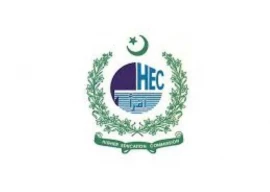
The indecent haste shown in the premature termination of the Higher Education Commission (HEC) chairman has rekindled the debate on the constitutionality of the HEC. Even before the 18th Amendment, education was a provincial subject, but with a large federal footprint in higher education. Ostensibly it arose from the federal-provincial imbalance in resource distribution, but the real anchor was the single-national-curriculum school of thought. The 7th National Finance Commission (NFC) Award tilted the resource balance towards the provinces. As the award preceded the 18th Amendment that clearly laid down the role of the federal government, the decision was to continue federal funding of the higher education during the currency of the award, i.e., until 2015. In terms of the amendment, the role of the federal government is limited to setting up agencies or institutes for research, professional or technical training or promotion of special studies, besides education of Pakistani students abroad and foreign students in Pakistan (Federal Legislative List, Part I, items 16 and 17). Like all regulatory functions across the federation, the subject of “Standards in institutions for higher education and research, scientific and technical institutions” was placed in the Federal List, Part II (Item 12), a joint domain of the federal and provincial governments, exercised under the Council of Common Interests (CCI). The true spirit of the Constitution is to have a leaner and smarter higher education regulatory authority rather than a heavy-handed, cash-dispensing commission. The job is to ensure quality without trespassing the autonomy of the universities and provinces. True, a Quality Assurance Agency has been created, but it is far from the regulatory mandate envisaged in the Constitution.
As often happens in this unfortunate land of ours, all good things come to pass sooner than later. First the sequencing got wrong. The provincial share in the resource envelop was increased before expansion of their domain. After the passage of the 18th Amendment, the PPP government’s attempt to devolve HEC was thwarted by the Chaudhry court in 2011. The Sindh government created its own higher education commission, but continued to raise the HEC devolution issue at the CCI. Though Punjab followed Sindh in having a higher education commission of its own, a PML-N government convened meeting of CCI in March 2015 constituted a committee under Ahsan Iqbal to deliberate on the HEC in the post-18th Amendment scenario. Its foot dragging indicated the government’s lack of interest in the issue. All the same, the delay in the constitution of the next NFC after the stipulated five years permitted the federal funding of higher education to continue. In 2016, the Sindh government circulated to the other CCI members Amendment in the Higher Education Commission Ordinance, 2002 and new legislation for Standards in Higher Education Institutions.
Committees and task forces continued to be set up without any serious follow up until the installation of the PTI government. In its first meeting of the CCI held in September 2018,
the ousted chairman HEC was asked “to meet all the chief ministers to discuss the issues in a holistic manner in order to find out solutions and identify steps to raise the standards of higher education.” These recommendations were to be considered in the CCI meeting expected on April 7. It is understood that most of the contentious issues with the provinces had been resolved and a consensus was emerging on implementing the Constitution in letter and spirit. But the centrist lobby seems to have struck again. Not unrelated, the media focus has shifted to the comings and goings of ministers. Education takes a back seat, as does the constitutionalisation of the HEC.
Published in The Express Tribune, April 2nd, 2021.
Like Opinion & Editorial on Facebook, follow @ETOpEd on Twitter to receive all updates on all our daily pieces.


1732071267-0/lana-(2)1732071267-0-165x106.webp)
1727242355-0/Diddy-(1)1727242355-0-165x106.webp)

1732063440-0/elon-(3)1732063440-0-165x106.webp)









COMMENTS
Comments are moderated and generally will be posted if they are on-topic and not abusive.
For more information, please see our Comments FAQ